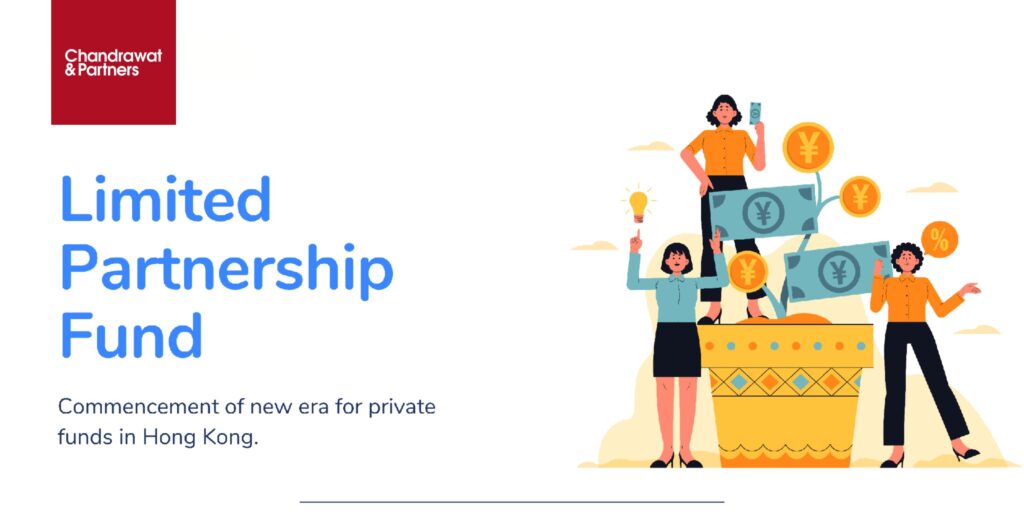
Hong Kong is a premier international asset and wealth management center, and the introduction of the new Limited Partnership Fund (LPF) regime will foster its position and attract private investment funds to set up and register in Hong Kong so as to facilitate the channeling of capital into corporates, including startups in the innovation and technology field in the Greater Bay Area. In this article, we provide a brief overview of some of the major features of LPFs.
What is Limited Partnership Fund?
The LPF regime was established by the Limited Partnership Fund Ordinance (LPFO) which took effect on 31 August, 2020, to enable private funds to be registered in the form of limited partnerships in Hong Kong.
LPF must have a registered office in Hong Kong and its application for registration must be submitted by a Hong Kong law firm or solicitor. In addition, some of the statutory duties of the general partner under the LPFO are:
- to appoint an investment manager for the investment management functions;
- to appoint an auditor;
- to ensure proper custody of assets; and
- to appoint a responsible person to carry out anti money laundering measures.
How it is similar to Exempted Limited Partnership of Cayman Islands?
LPF is established by a limited partnership agreement and does not have a separate legal personality and acts through its general partner, similar to an Exempted Limited Partnership (ELP) in the Cayman Islands.
The protection on the limited liability status of limited partners and the flexibility on contractual terms of the LPF are also similar to that of an ELP. Both LPF and ELP:
- can be owned by foreigners or foreign entities.
- do not offer a mechanism for the segregation of assets and liabilities.
- have no exchange control or currency restriction.
- have no requirement for a registered agent.
Who will use and benefit from the Hong Kong LPF?
The Hong Kong LPF is aimed primarily at private funds. This includes but are not limited to:
- private equity funds
- venture capital funds
- buyout funds
- real estate funds
- infrastructure and project funds
- distressed asset
- credit and hybrid funds
The new fund regime will be of great benefit to private fund managers in Hong Kong who are looking for a profitable structuring solution.
What are the tax benefits?
The application of Hong Kong profits tax must be considered in respect of the main financial returns of LPF, including
- tax payable on the income of the LPF,
- tax payable for the management fee, and
- tax payable on carried interest.
Stamp duty – No stamp duty is chargeable for any transfer, contribution, or withdrawal to/from Hong Kong LPF, as the partnership interest of the LPF will not be considered as stock.
Profit tax – The income of LPF will be exempted from Hong Kong profits tax if the LPF satisfies the unified fund tax exemption (“UFE”) as per the Inland Revenue Department. Profit Tax exemption included fund transactions and profit from incidental transitions.
Carried interest – The Government of Hon Kong offers tax concessions for carried interest issued by LPF operating in Hong Kong subject to fulfillment of certain conditions.
Tax payable for the management fees – If the investment manager does not carry out its business in Hong Kong, such fees will not be subject to Hong Kong profits tax, but will remain subject to the applicable profits of the investment manager’s home jurisdiction.
What are the advantages of the new regime?
Hong Kong has already established itself as a prime operating base in Asia for private equity and venture capital firms. The LPF brings a number of additional advantages over offshore jurisdictions, such as:
- Simplifying the legal structure by removing the onshore/offshore structure.
- All vehicles can be in a single jurisdiction and aligned with the substance of the activities.
- For the structured private fund, lower set up and annual fees payable to the Hong Kong Registrar compared to fees payable in the Cayman Islands.
- The need for two layers of service providers will be removed, hence reducing cost.
- Hong Kong’s extensive network of double tax treaties with other jurisdictions will be helpful in promoting the new regime.
- No restriction for employment of accounting standards at the fund level enhanced convenience for the investment manager having existing funds.
The new LPF regime in Hong Kong has provided a convincing alternative to other well established fund structures in other jurisdictions.
With an established prime operating base for private equity and venture capital firms and combined proposals of the Government on the tax concession, Hong Kong’s attraction for the onshoring of all fund and management vehicles is increasing significantly.
Also, Hong Kong’s proximity to Mainland China and its membership in the Greater Bay Area forms a breeding ground for attractive investment opportunities in a number of fast growing industries.
To know more about LPF in Hong Kong download our booklet.
For any enquiries or comments, please do not hesitate to contact us at [email protected]
Key Contact

Surendra Singh Chandrawat
Managing Partner

